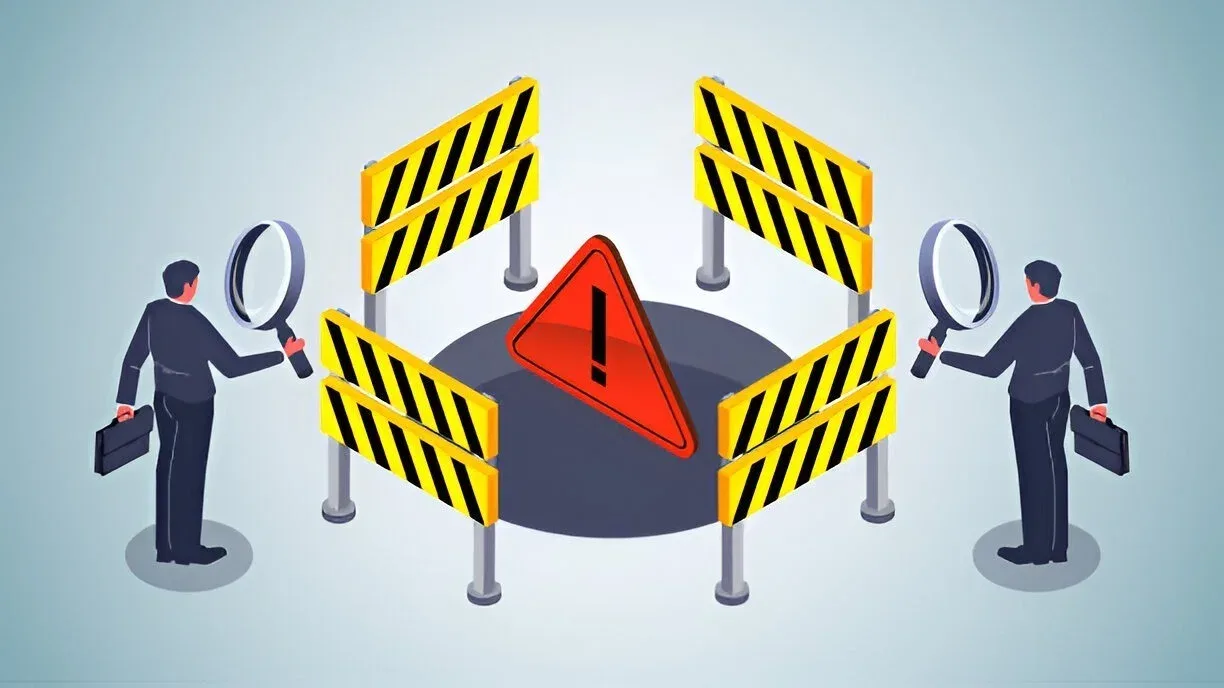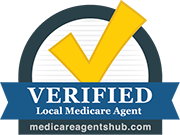Medicare is a vital resource for many seniors, providing essential health coverage and peace of mind. However, like any large program, it can be susceptible to fraud and abuse. Understanding how to recognize, protect yourself from, and report Medicare fraud and abuse is crucial for safeguarding your benefits and personal information. In this comprehensive guide, we’ll walk you through the essentials of Medicare fraud, how to protect yourself, and what steps to take if you suspect wrongdoing.

Recognizing Medicare Fraud and Abuse
Understanding the signs of Medicare fraud and abuse is the first step in protecting yourself. Here’s what to look out for:
Common Signs of Medicare Fraud
Fraudulent Billing: This occurs when healthcare providers bill Medicare for services or items that were never provided. Common examples include:
- Billing for Unnecessary Services: Providers may bill for tests or treatments that were not performed.
- Billing for Services Never Rendered: You may receive bills for services you didn’t receive.
False Claims: This involves submitting false information to Medicare, such as:
- False Diagnosis Codes: Providers might use incorrect diagnosis codes to increase payments.
- Misrepresentation of Services: Services may be exaggerated or misrepresented to obtain higher reimbursements.
Identity Theft: Medicare fraud can also involve the misuse of personal information:
- Using Someone Else’s Medicare Number: Your Medicare number may be used by others to access services or commit fraud.
- Phishing Scams: Scammers may pose as Medicare representatives to steal personal information.
Signs of Medicare Abuse
Overuse of Services: Medicare abuse can occur when providers offer unnecessary services or treatments:
- Unnecessary Tests: Repeated or excessive testing without medical justification.
- Overprescribing Medications: Providers may prescribe medications unnecessarily.
Substandard Care: Abuse may involve substandard care or neglect:
- Neglect: Failure to provide appropriate care or meet basic medical needs.
- Inappropriate Behavior: Instances of unprofessional conduct or mistreatment.

Protecting Yourself from Medicare Fraud and Abuse
Safeguarding your personal and medical information is crucial in preventing Medicare fraud and abuse. Here are some practical tips to help protect yourself:
Safeguard Your Medicare Number
Keep It Confidential: Treat your Medicare number like a credit card number:
- Don’t Share: Only provide your Medicare number when absolutely necessary and only to trusted entities.
- Shred Documents: Shred any paperwork containing your Medicare number before disposing of it.
Monitor Your Statements: Regularly review your Medicare Summary Notices (MSNs) and Explanation of Benefits (EOBs):
- Check for Errors: Look for services or charges you don’t recognize.
- Report Discrepancies: Contact Medicare if you find any errors or suspicious charges.
Be Cautious with Personal Information
Verify Requests: Be wary of unsolicited phone calls or emails asking for personal information:
- Scam Calls: Scammers may pose as Medicare representatives.
- Phishing Emails: Emails requesting personal details should be ignored or reported.
Secure Your Information: Protect your personal and medical information online and offline:
- Use Strong Passwords: Ensure your online Medicare accounts are protected with strong, unique passwords.
- Secure Storage: Keep personal information in a safe place.
Choose Healthcare Providers Wisely
Verify Credentials: Ensure your healthcare providers are reputable and licensed:
- Check Licenses: Verify the credentials of doctors and medical facilities.
- Read Reviews: Look for reviews or ratings of providers and facilities.
Ask Questions: Don’t hesitate to ask your healthcare provider questions about treatments and services:
- Understand the Necessity: Ask why a particular service or treatment is needed.
- Get Second Opinions: Consider seeking a second opinion for significant medical decisions.

Reporting Suspicions of Medicare Fraud and Abuse
If you suspect Medicare fraud or abuse, it’s essential to report it promptly. Here’s how you can take action:
Reporting Fraud or Abuse
Contact Medicare: Report fraud or abuse directly to Medicare:
- Medicare Fraud Hotline: Call 1-800-MEDICARE (1-800-633-4227) to report suspected fraud or abuse.
- Online Reporting: Use the Medicare website to report fraud or abuse.
File a Complaint: If you suspect a specific provider or facility, file a complaint with the appropriate authorities:
- Office of Inspector General (OIG): The OIG investigates Medicare fraud and abuse. You can report suspected fraud via their hotline at 1-800-447-8477 or online.
Notify Your Insurance Company: If you have private insurance in addition to Medicare, report any suspicious activities to your insurer.
Additional Resources and Support
Senior Medicare Patrol (SMP) Program: The SMP program provides assistance to seniors in preventing and reporting Medicare fraud:
- Find Local SMPs: Visit the SMP website to find local resources and get help with Medicare fraud issues.
State Health Insurance Assistance Programs (SHIPs): SHIPs offer free, unbiased help with Medicare issues:
- Contact SHIPs: Find your local SHIP program for personalized assistance.

Conclusion: Stay Vigilant and Informed
Protecting yourself from Medicare fraud and abuse is an ongoing effort that requires vigilance and awareness. By recognizing the signs of fraud, safeguarding your personal information, and reporting suspicious activities, you can help prevent fraud and ensure your Medicare benefits remain secure.
Key Takeaways:
- Recognize Fraud: Be aware of common signs of Medicare fraud and abuse.
- Protect Yourself: Safeguard your Medicare number and personal information.
- Report Suspicions: Take action by reporting fraud and abuse to the appropriate authorities.
For further assistance or if you need help navigating Medicare fraud and abuse concerns, visit www.mwiallc.com or contact our team of experts for guidance.
Discover practical advice for staying healthy, active, and mentally sharp as you age. Embracing a healthy lifestyle can enhance your quality of life and help you stay independent longer.

Stay Physically Active
Regular physical activity is crucial for maintaining mobility, strength, and overall health. Here are some tips:- Exercise Regularly: Aim for at least 150 minutes of moderate-intensity aerobic activity, such as brisk walking, each week. Include muscle-strengthening activities on two or more days a week.
- Incorporate Balance Exercises: Practice balance exercises like tai chi or yoga to reduce the risk of falls.
- Stay Flexible: Engage in stretching exercises to maintain flexibility and range of motion.
Eat a Balanced Diet
Good nutrition supports healthy aging. Focus on a balanced diet with these tips:- Eat a Variety of Foods: Include fruits, vegetables, whole grains, lean proteins, and healthy fats in your diet.
- Stay Hydrated: Drink plenty of water throughout the day to stay hydrated.
- Limit Processed Foods: Reduce your intake of processed foods, sugar, and saturated fats.
- Consider Supplements: Consult your doctor about any necessary supplements, such as calcium, vitamin D, or B12.
Keep Your Mind Active
Mental stimulation is essential for cognitive health. Keep your mind sharp with these activities:- Engage in Puzzles and Games: Challenge your brain with puzzles, crosswords, and strategy games.
- Learn New Skills: Take up new hobbies or learn something new, such as a language or musical instrument.
- Read Regularly: Read books, newspapers, or magazines to stay informed and mentally engaged.
- Socialize: Stay connected with friends and family. Join clubs, volunteer, or participate in community activities to maintain social interactions.
Prioritize Mental Health
Emotional well-being is just as important as physical health. Here’s how to take care of your mental health:- Practice Mindfulness: Engage in mindfulness practices such as meditation, deep breathing, or yoga to reduce stress.
- Stay Positive: Focus on positive thinking and gratitude. Keep a journal to reflect on things you’re thankful for.
- Seek Help When Needed: If you’re feeling overwhelmed, anxious, or depressed, don’t hesitate to seek professional help.
Get Regular Check-Ups
Routine medical check-ups can help prevent and manage health issues. Follow these guidelines:- Schedule Regular Visits: See your healthcare provider for regular check-ups and screenings.
- Stay Up-to-Date on Vaccinations: Ensure you receive recommended vaccinations, such as flu shots and shingles vaccines.
- Manage Chronic Conditions: If you have chronic conditions like diabetes, high blood pressure, or arthritis, follow your treatment plan and monitor your health closely.
Sleep Well
Quality sleep is vital for overall health. Improve your sleep with these tips:- Establish a Routine: Go to bed and wake up at the same time each day, even on weekends.
- Create a Restful Environment: Keep your bedroom cool, dark, and quiet. Invest in a comfortable mattress and pillows.
- Limit Screen Time: Avoid screens (phones, tablets, TVs) at least an hour before bedtime.
Stay Safe at Home
Create a safe living environment to prevent accidents and injuries:- Remove Hazards: Eliminate tripping hazards like loose rugs and clutter. Install grab bars in bathrooms and railings on stairs.
- Improve Lighting: Ensure your home is well-lit, especially stairways and hallways.
- Wear Proper Footwear: Choose supportive, non-slip shoes to reduce the risk of falls.
Stay Connected
Social connections are important for emotional and mental health. Stay connected with these tips:- Maintain Relationships: Keep in touch with family and friends through regular phone calls, visits, or video chats.
- Join Groups: Participate in clubs, religious groups, or community centers to meet new people and stay engaged.
- Volunteer: Volunteering is a great way to stay active, meet people, and contribute to your community.
💡 Tip: Implement small changes to your daily routine to support healthy aging. For personalized health and wellness advice, contact @midwestinsuranceagency today!
1. Recognizing Medicare Fraud and Abuse
Understanding the signs of Medicare fraud and abuse is the first step in protecting yourself. Here’s what to look out for:1.1 Common Signs of Medicare Fraud
Fraudulent Billing: This occurs when healthcare providers bill Medicare for services or items that were never provided. Common examples include:- Billing for Unnecessary Services: Providers may bill for tests or treatments that were not performed.
- Billing for Services Never Rendered: You may receive bills for services you didn’t receive.
- False Diagnosis Codes: Providers might use incorrect diagnosis codes to increase payments.
- Misrepresentation of Services: Services may be exaggerated or misrepresented to obtain higher reimbursements.
- Using Someone Else’s Medicare Number: Your Medicare number may be used by others to access services or commit fraud.
- Phishing Scams: Scammers may pose as Medicare representatives to steal personal information.
1.2 Signs of Medicare Abuse
Overuse of Services: Medicare abuse can occur when providers offer unnecessary services or treatments:- Unnecessary Tests: Repeated or excessive testing without medical justification.
- Overprescribing Medications: Providers may prescribe medications unnecessarily.
- Neglect: Failure to provide appropriate care or meet basic medical needs.
- Inappropriate Behavior: Instances of unprofessional conduct or mistreatment.
2. Protecting Yourself from Medicare Fraud and Abuse
Safeguarding your personal and medical information is crucial in preventing Medicare fraud and abuse. Here are some practical tips to help protect yourself:2.1 Safeguard Your Medicare Number
Keep It Confidential: Treat your Medicare number like a credit card number:- Don’t Share: Only provide your Medicare number when absolutely necessary and only to trusted entities.
- Shred Documents: Shred any paperwork containing your Medicare number before disposing of it.
- Check for Errors: Look for services or charges you don’t recognize.
- Report Discrepancies: Contact Medicare if you find any errors or suspicious charges.
2.2 Be Cautious with Personal Information
Verify Requests: Be wary of unsolicited phone calls or emails asking for personal information:- Scam Calls: Scammers may pose as Medicare representatives.
- Phishing Emails: Emails requesting personal details should be ignored or reported.
- Use Strong Passwords: Ensure your online Medicare accounts are protected with strong, unique passwords.
- Secure Storage: Keep personal information in a safe place.
2.3 Choose Healthcare Providers Wisely
Verify Credentials: Ensure your healthcare providers are reputable and licensed:- Check Licenses: Verify the credentials of doctors and medical facilities.
- Read Reviews: Look for reviews or ratings of providers and facilities.
- Understand the Necessity: Ask why a particular service or treatment is needed.
- Get Second Opinions: Consider seeking a second opinion for significant medical decisions.
3. Reporting Suspicions of Medicare Fraud and Abuse
If you suspect Medicare fraud or abuse, it’s essential to report it promptly. Here’s how you can take action:3.1 Reporting Fraud or Abuse
Contact Medicare: Report fraud or abuse directly to Medicare:- Medicare Fraud Hotline: Call 1-800-MEDICARE (1-800-633-4227) to report suspected fraud or abuse.
- Online Reporting: Use the Medicare website to report fraud or abuse.
- Office of Inspector General (OIG): The OIG investigates Medicare fraud and abuse. You can report suspected fraud via their hotline at 1-800-447-8477 or online.
3.2 Additional Resources and Support
Senior Medicare Patrol (SMP) Program: The SMP program provides assistance to seniors in preventing and reporting Medicare fraud:- Find Local SMPs: Visit the SMP website to find local resources and get help with Medicare fraud issues.
- Contact SHIPs: Find your local SHIP program for personalized assistance.
4. Conclusion: Stay Vigilant and Informed
Protecting yourself from Medicare fraud and abuse is an ongoing effort that requires vigilance and awareness. By recognizing the signs of fraud, safeguarding your personal information, and reporting suspicious activities, you can help prevent fraud and ensure your Medicare benefits remain secure. Key Takeaways:- Recognize Fraud: Be aware of common signs of Medicare fraud and abuse.
- Protect Yourself: Safeguard your Medicare number and personal information.
- Report Suspicions: Take action by reporting fraud and abuse to the appropriate authorities.














